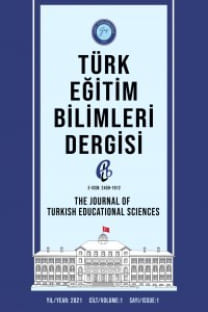TOPLUMSAL DEĞİŞME KARŞISINDA AİLE VE OKUL
Yeni bir yüzyılla yeni bir bin yıla giren insanlığın geride bıraktığı son 200 yıl, büyük çapta değişimlerim ve dönüşümlerin yaşandığı yıllar olmuştur. Özellikle bilimsel ve teknik ilerlemelerle insanlık, bugün topluluk içindeki veya dışındaki diğer bireylere veya kurumlara güven duymamakta, bu da aralarında iş birliğine izin veren bir grubun üyelerince paylaşılan, yazılı olmayan bir dizi değerler ve normlar olarak tanımlanabilen toplumsal sermayenin zayıflığına işaret etmektedir. Sanayi devriminden sonra yapılanan Batı toplumlarında yaşayan insanlar pek çok sorunlarla karşı karşıyadır ki bu da “Bireyleri hayata hazırlayan okullar işlevlerini yerine getirmede zorlanıyorlar mı?” sorusunu akla getirmektedir. Dikey otoritenin güç kaybetmesi, bireyleri etkisi altına alan yatay otorite güçlerinin çoğalması, ebeveynleri ve okulları güç durumlara düşürmektedir. Okulların, çocukların kişisel ve ahlaki gelişimine ilişkin tüm sorumlulukları üstlenmesi beklenemez; toplumun tüm katmanları okula yardımcı olmalı ve onu desteklemeli, okul ile toplum arasında yakın bir çalışma ilişkisi kurulmalıdır. Öğretmenlere düşen görev de ahlak konusunda açık ve tutarlı bir yol izlemektir. Eğer bu görevi öğretmenler yerine getirmezse, okullar güç kaybeder. Çocukların kişisel ve ahlaki gelişimi için eğitimde okullar ile ebeveynler arasında etkili bir partnerlik kurulması, okul ile toplum arasında yakın bir çalışma ve iş birliğinin oluşturulması yaşadığımız toplumsal değişimin ve çağın gereğidir.
Anahtar Kelimeler:
Sosyal değişim, sosyal sermaye, aile ve okul
FAMILY AND SCHOOL IN VIEW OF SOCIAL CHANGE
The last 200 years the humankind left behind has been years in which great changes and transformations have been lived. Especially with the scientific and technical advancements, humankind today do not have confidence in with the individuals inside and outside the community and the institutions which result in the weakness of social capital that can be identified as a series of norms and values shared among the members of a group who give the permission of cooperaion among themselves. People living in the Western societies which have been restructured after the industrial revolution are faced with a variety of problems which brings up the question "do the schools that perpare the individuals to life have problems in fulfilling these responsibilities?". The power loss of vertical authority, growing of horizontal autority power which gets at the individuals land parents and the schools in an awkward position. Schools can not be expected to assume all the responsibilities about the personal and moral developments of the children, all layers of the society must help and support the school, a close study relationship between the school and the society must be established. The duty of the teacher is to follow an apparent and consistent route in morality. If the teachers do not fulfill these duties, the schools lose power. It is the requirement of the society and the age we live in that in education there must be the establishment of an effective partnership between schools and parents, and a coherent study and cooperation between the school and the society for the moral development of the children.
Keywords:
Social change, social capital, family and school,
___
- Fukuyama, F. (2000). Büyük Çözülme, (Çev. Z. Avcı, A. T. Aydemir), Sabah Kitapları, İstanbul.
- Furedi, F. (2001). Korku Kültürü, (Çev. Barış Yıldırım), Ayrıntı Yayınları, İstanbul.
- Gençtan, E. (2002). Hayat, İstanbul: Metis Yayınları.
- Giddens, A. (2000). Sosyoloji, (Çev.H: Özel, C. Güzel), Ayraç Yayınevi, Ankara.
- Habermas, J. (2002). Küreselleşme ve Milli Devletlerin Akibeti. İstanbul: Bakış Yayınları.
- Lawrence M. F. (2002). Yatay Toplum, (Çev. Ahmet Fethi), İş Bankası Kültür Yayınları, İstanbul.
- Nave-Herz, R. (1997). Familie Heute, Wandel der Familienstrukturen und Folgen für Erziehung, Primus Verlug, Darmstadt.
- Özgüven, İ. E. (2000). Evlilik ve Aile Terapisi, PDREM Yayınları, Ankara.
- Peukert, R. (1991). Familienform im sozialen Wandel, Leske+Budrich Verlag, Opladen.
- Thomas, P. (1998). Personal and Moral Development, in A. Cashdan & L. Overall. (eds) Teaching in Primary Schools, London: Cassell.
- Yıldırım, İ. (1992). Evli Bireylerin Uyum Düzeylerini Etkileyen Bazı Etmenler, PDR Doktora Tezi, Hacettepe Üniversitesi, Ankara.
- Başlangıç: 2003
- Yayıncı: ANKARA HACI BAYRAM VELİ ÜNİVERSİTESİ
Sayıdaki Diğer Makaleler
Öğrencilerin Çalışma Oryantasyonlarını Etkileyen Demografik Faktörler
ÖĞRETMENLERİN MARUZ KALDIKLARI YILDIRMA EYLEMLERİNİN CİNSİYET YÖNÜNDEN İNCELENMESİ
Necati CEMALOĞLU, Abbas ERTÜRK
ÖĞRENCİLERİN ÇALIŞMA ORYANTASYONLARINI ETKİLEYEN DEMOGRAFİK FAKTÖRLER
